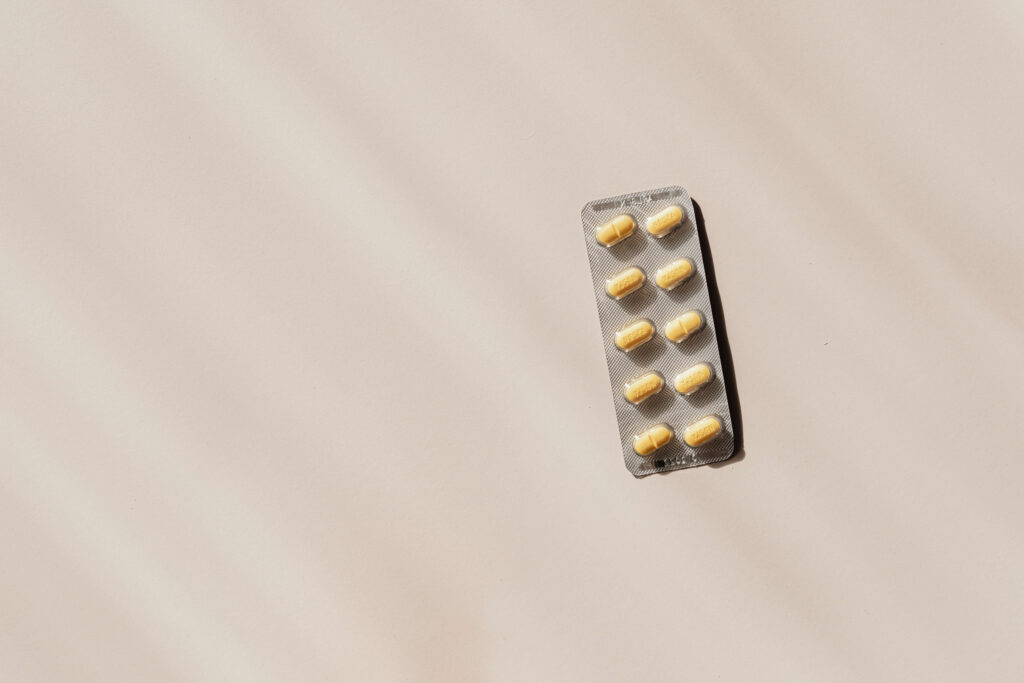Polycystic Ovary Syndrome (PCOS) is a common hormonal disorder that affects millions of individuals worldwide. It’s characterized by various physical symptoms like irregular periods, excess hair growth, weight gain, acne, and infertility. However, there’s a lesser-known aspect of PCOS that often goes unnoticed – its profound impact on mental health. Research has shown that individuals with PCOS are at a higher risk of experiencing mental health challenges compared to those without the condition. Depression, anxiety, mood swings, and low self-esteem are among the most common psychological issues faced by those with PCOS.

Understanding the Types of PCOS and Their Symptoms
PCOS is not a one-size-fits-all condition. There are different types or presentations of PCOS, each with its own set of symptoms and underlying hormonal imbalances. These types include:
- Insulin-Resistant PCOS: This type is characterized by insulin resistance, where the body’s cells do not respond effectively to insulin. Symptoms may include weight gain, difficulty losing weight, and an increased risk of type 2 diabetes.
- Adrenal PCOS: In this type, there’s a significant imbalance of sex hormones, particularly excess androgens (testosterone and DHEA-S). This can lead to symptoms like acne, excess hair growth, and irregular periods.
- Inflammatory PCOS: Chronic low-grade inflammation in the body can worsen hormonal imbalances and contribute to various PCOS symptoms.
- Post-Pill PCOS: Hormonal birth control (HBC) suppresses the body’s natural production of sebum, so the body produces more sebum when on the pill. Once you stop taking the pill, the increased sebum production can persist for several months and lead to acne. HBC can also increase insulin production, which triggers our ovaries to produce more testosterone, and this can persist for several months after you stop.
Integrative Psychiatry Strategies for Resolving PCOS
- Nutritional Balance: Diet plays a crucial role in managing PCOS. Prioritizing whole foods, managing carbohydrate intake, increasing protein, and incorporating anti-inflammatory foods can help regulate insulin levels and hormone production.
- Blood Sugar Regulation: Insulin resistance is a common feature of PCOS. Integrative medicine strategies focus on stabilizing blood sugar levels through dietary changes, regular physical activity, time restricted eating, and targeted supplementation with nutrients like chromium, alpha-lipoic acid, and magnesium.
- Gut Health Optimization: The gut microbiome has been linked to hormonal imbalances and inflammation. An integrative psychiatrist might suggest interventions to support gut health, such as probiotics, prebiotics, and dietary fiber. These measures can help reduce inflammation and improve hormonal balance.
- Hormonal Balance Support: Integrative psychiatrists take a personalized approach to addressing hormonal imbalances associated with PCOS. Herbal supplements like saw palmetto, spearmint, and chasteberry might be recommended to regulate androgen levels and promote hormone equilibrium
- Stress Management: Chronic stress can exacerbate hormonal imbalances in PCOS. Integrative psychiatry strategies include mindfulness techniques, yoga, meditation, and adaptogenic herbs like ashwagandha to support the body’s stress response.
- Detoxification Support: Toxins in the environment can disrupt hormonal balance. An integrative psychiatrist might recommend strategies to reduce exposure to environmental toxins and support the body’s natural detoxification processes through dietary choices and targeted supplementation.

Understanding the Role of Supplements in PCOS Management
Supplements can complement lifestyle changes by providing specific nutrients that support hormonal regulation, insulin sensitivity, and other aspects of PCOS. It’s important to note that while supplements can be beneficial, they should not replace a balanced diet and healthy lifestyle.
1. Inositol: Inositol is a B-vitamin-like compound that has gained attention for its potential to improve insulin sensitivity and ovarian function in individuals with PCOS. Myo-inositol and D-chiro-inositol are two common forms of inositol that can be taken together to help regulate insulin levels and menstrual irregularities.
2. Omega-3 Fatty Acids: Omega-3 fatty acids, found in fatty fish like salmon and in supplements like fish oil, have anti-inflammatory properties.Omega-3s also support heart health and can contribute to improved hormonal balance.
3. Vitamin D: Vitamin D deficiency is common in individuals with PCOS and is associated with insulin resistance and hormonal imbalances. Supplementation with vitamin D can help improve insulin sensitivity, regulate menstrual cycles, and improve ovarian reserve.
4. Chromium: Chromium is a trace mineral that plays a role in insulin signaling and glucose metabolism. Supplementing with chromium can support better blood sugar control and insulin sensitivity, which are crucial for managing PCOS-related symptoms.
5. N-acetylcysteine (NAC): NAC is an antioxidant that has been shown to improve insulin sensitivity and reduce oxidative stress in individuals with PCOS. It may also help regulate menstrual cycles and improve ovulation.
6. Berberine: Berberine is a natural compound found in certain plants. It has been studied for its potential to improve insulin sensitivity, lower blood sugar levels, and reduce inflammation. Berberine may also help with menstrual regularity in PCOS.
7. Magnesium: Magnesium plays a role in insulin sensitivity and glucose metabolism. It can also help manage stress and improve sleep quality, which are important factors for overall well-being in individuals with PCOS.
8. Zinc: Zinc is essential for hormonal balance and immune function. It may help regulate androgen levels and support healthy ovarian function.
9. Saw Palmetto: Saw palmetto reduces the conversion of testosterone to dihydrotestosterone, which stimulates male characteristics, and promotes estrogen balance.
As PCOS is such a common endocrine disorder and can impact fertility, I see many women in my practice who struggle with the symptoms of PCOS and the subsequent impact on mental health. My approach includes lab testing to understand the subtype of PCOS, nutrition guidance with the goal of increasing blood sugar stabilization and decreasing insulin resistance, supplement optimization for blood sugar control and hormonal balance, as well as help with optimization of sleep and exercise.
In conclusion, Polycystic Ovary Syndrome (PCOS) is a complex condition that not only affects physical health but also has a profound impact on mental well-being. Understanding the different types of PCOS and their associated symptoms is crucial in providing personalized care. At Tend to Her, we are dedicated to offering a comprehensive approach to PCOS management, addressing both the physical and emotional aspects of this condition.
If you or someone you know is struggling with PCOS and its related mental health challenges, I invite you to take the next step towards a healthier, happier life. Explore our integrative psychiatry strategies, personalized nutrition guidance, and carefully selected supplements to support your journey towards hormonal balance and emotional well-being. Together, we can work towards resolving PCOS and improving overall quality of life. Don’t wait; visit our website today to learn more and take charge of your health. Your journey to wellness begins here.